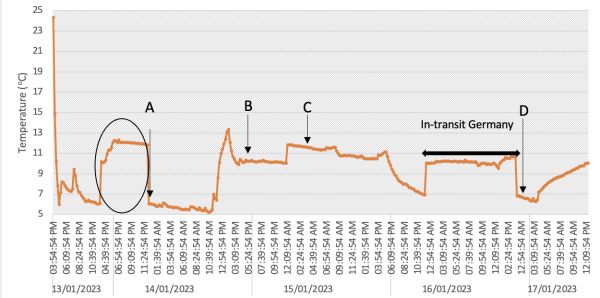The Cool Chain Association plans to draft a best practice handling procedure for perishables based on a series of trials tracking exports from farm to consumer by its partner, Perishable Products Export Control Board (PPECB) in South Africa.
A PPECB pilot trial that monitored cut flower exports from South Africa to Europe last month highlighted the impact of temperature excursions on vase life, said CCA board member and PPECB general manager, Vijan Chetty. (Pictured).
The trial was conducted in collaboration with Arnelia Farms, a South African wholesale flower nursery and exporter, and tracked Sunshine Conebush flower consignments packed on-farm near Hopefield in the Western Cape province of South Africa to destinations in the Netherlands and Germany.
“Trials over the past few years have focused primarily on the final mile of a specific trade lane,” said Chetty, speaking at the Air Cargo Africa Event in Johannesburg, South Africa in late February. “We will be looking at farm to table or vase across a trade lane, and not only focusing on monitoring the temperature of the product, but also aiming to identify all areas where shelf life could be influenced, including, for example, post-harvest practices, packaging and palletisation, and the functionality of cold storage.”
CCA, which recently signed a Memorandum of Understanding (MOU) with the PPECB, will review the research trials and identify possible risk areas, in order to draft the best practice procedure.
The PPECB pilot trial used air temperature loggers on two consignments sent two days apart to monitor variations in cold chain conditions. Results showed that mean temperatures reached up to 10.4°C, considerably higher than the 5°C recommended for cut flowers.
Although the flowers arrived in acceptable condition, vase life was affected by this temperature excursion.
PPECB will now run trials on other fast moving perishable items such as berries, and will move on to compare the cool chain, shelf life, and quality of commodities moved by air versus sea.






